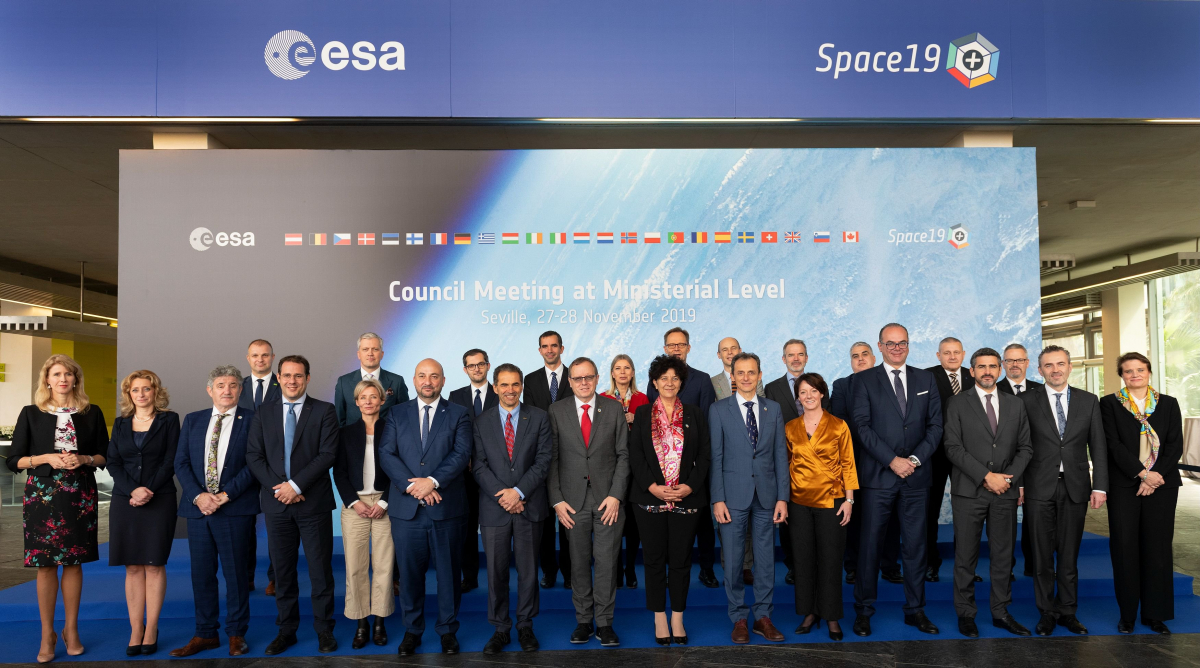The long-awaited ministerial meeting of the European Space Agency, which took place on November 27 and 28, ended with a historic budget agreement.
On November 28, in Seville (Spain), after two days of debate, the European Space Agency’s Council at Ministerial Level ended with a historic agreement: an amount of 14.388 billion euros was approved for the period going between 2020 and 2025 (12.5 billions of which will be given access to before 2023), while the particularly ambitious proposal amounted to 14.256 billions. A first since the creation of ESA in 1973.
A giant leap.
Thus, all the suggested programs — mandatory and optional — have been approved: scientific missions such as LISA (first space observatory of gravitational waves), Athena (X-ray telescope to study black holes), ExoMars (search for life on Mars), Mars Sample Return or preparing the launchers of the future and the Space Rider mini-shuttle, exploration (support for the return to the moon with the ESPRIT module of the Gateway, support for the International Space Station (ISS) until 2030), Earth observation (11 new missions), telecommunications, positioning by satellite and space safety (removal of dangerous debris and automation of space traffic control). Let's remember that the latter is a novelty of this ministerial meeting.
A European effort led by Germany.
Manuel Heitor, Portuguese Minister of Science, Technology and Higher Education, who co-chaired the meeting, declared: “At Space19+ in Seville, together with my colleagues Ministers from ESA Member States, we secured a further step to foster Europe’s competitive position in the global space arena. We therefore invited all ESA Member States to seriously engage in taking stock of space activities in a continuous way and strengthen the role of ESA in Europe in close articulation with the European Commission.”
This success for the European space sector — which adds to the efforts of the European Union, which also plans to provide 16 billion euros for its space programs over the 2021-2027 period — is mainly the result of the significant increase in contributions from several Member States, especially Germany, which, with a contribution of nearly €3.3 billion, now outpaces France (which promises nearly €2.7 billion, but also continues financing one third of the Guiana Space Center).

